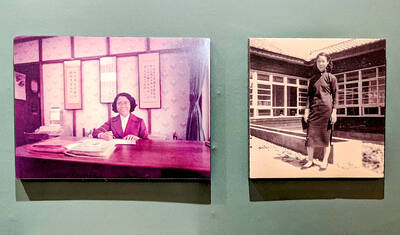Born into a family of farmers in Haute-Loire, a remote region of southern France, Raymond Depardon went to Paris at the age of 16 to escape his destiny as a farmer’s son. The Pulitzer Prize-winning photojournalist and filmmaker has since traveled the world. More than a decade ago, however, he felt the urge to return to his origins and began filming the dairy farmers who cling to their fading way of life in the isolated highlands.
The end result is Depardon’s austere yet rewarding triptych Profils Paysans. Modern Life (La Vie Moderne) serves as the masterful coda to the series.
Drifting through the seasons, the stunning traveling shots take both the audience and filmmaker back to the aging inhabitants who appear in Profils Paysans: L’Approche (2001) and Le Quotidien (2005). The Privat family once again plays a central role. Octogenarian brothers Marcel and Raymond still tend sheep and cattle, though the herds diminish and their health declines. The arrival of Cecile, their nephew’s new wife, further complicates matters as the unmarried brothers feel uncomfortable with the presence of this strong-willed woman from the outside world. Other subjects include middle-aged Daniel Roy, the only child from a family of six who stays on the farm, though he constantly and inarticulately expresses his displeasure towards farming life.
Depardon resists sentimentality, and his respect for his subjects shines through patient camera work. Long takes frame farmers in the same manner as classical portraiture would, where taciturn men and women are given space to pause, breathe and sit mute. The filmmaker doesn’t interrogate, nor attempt to milk stories to support a thesis. Simple questions are asked. Sometimes there are answers, sometimes nothing but silence.
Depardon’s less-is-more approach reveals as much about what is being said verbally as its does about what is being conveyed through the uneasy body language of the farmers. His sympathy for them is deeply felt and delivers a sense of geniality without which the film would have been uncomfortable to watch.
Though it is impossible to overlook the film’s fatalism, the veteran filmmaker commendably resists the temptation to paint an elegy on the demise of family farms and the ancient way of life. Rather than generalizing and formulating clear-cut issues and messages, Depardon quietly sits with the farmers and allows them to speak for themselves.
Last year’s winner of the Prix Louis-Delluc, the prestigious award that honors the best French film of the year, Modern Life is another piece of resonant and poignant work of Depardon’s distinctive filmmaking suffused with humanism and compassion.

Following the shock complete failure of all the recall votes against Chinese Nationalist Party (KMT) lawmakers on July 26, pan-blue supporters and the Chinese Communist Party (CCP) were giddy with victory. A notable exception was KMT Chairman Eric Chu (朱立倫), who knew better. At a press conference on July 29, he bowed deeply in gratitude to the voters and said the recalls were “not about which party won or lost, but were a great victory for the Taiwanese voters.” The entire recall process was a disaster for both the KMT and the Democratic Progressive Party (DPP). The only bright spot for

Aug. 11 to Aug. 17 Those who never heard of architect Hsiu Tse-lan (修澤蘭) must have seen her work — on the reverse of the NT$100 bill is the Yangmingshan Zhongshan Hall (陽明山中山樓). Then-president Chiang Kai-shek (蔣介石) reportedly hand-picked her for the job and gave her just 13 months to complete it in time for the centennial of Republic of China founder Sun Yat-sen’s birth on Nov. 12, 1966. Another landmark project is Garden City (花園新城) in New Taipei City’s Sindian District (新店) — Taiwan’s first mountainside planned community, which Hsiu initiated in 1968. She was involved in every stage, from selecting

Water management is one of the most powerful forces shaping modern Taiwan’s landscapes and politics. Many of Taiwan’s township and county boundaries are defined by watersheds. The current course of the mighty Jhuoshuei River (濁水溪) was largely established by Japanese embankment building during the 1918-1923 period. Taoyuan is dotted with ponds constructed by settlers from China during the Qing period. Countless local civic actions have been driven by opposition to water projects. Last week something like 2,600mm of rain fell on southern Taiwan in seven days, peaking at over 2,800mm in Duona (多納) in Kaohsiung’s Maolin District (茂林), according to

As last month dawned, the Democratic Progressive Party (DPP) was in a good position. The recall campaigns had strong momentum, polling showed many Chinese Nationalist Party (KMT) lawmakers at risk of recall and even the KMT was bracing for losing seats while facing a tsunami of voter fraud investigations. Polling pointed to some of the recalls being a lock for victory. Though in most districts the majority was against recalling their lawmaker, among voters “definitely” planning to vote, there were double-digit margins in favor of recall in at least five districts, with three districts near or above 20 percent in